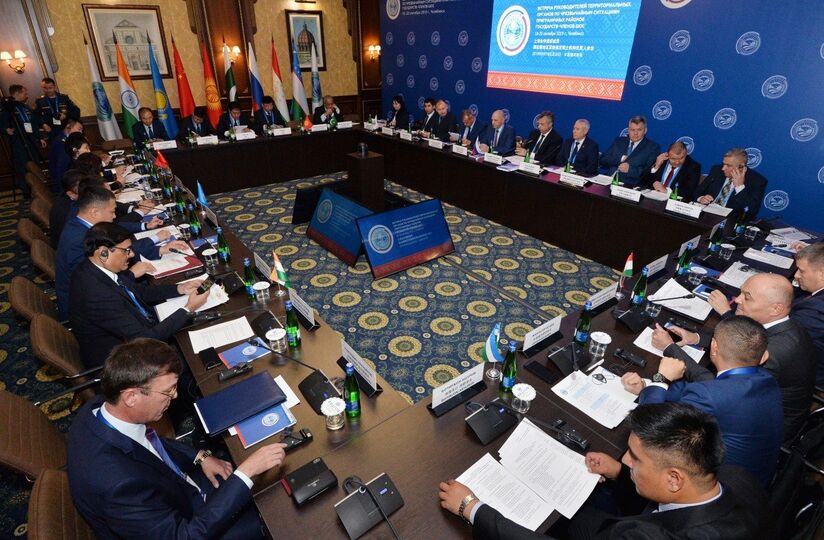On 18-20 September 2019, Chelyabinsk in the South Urals was the venue of the seventh Meeting of Heads of Territorial Authorities for Border Area Emergencies of the SCO Member States. The event was attended by delegations from India, Kazakhstan, China, Kyrgyzstan, Russia, Pakistan, Tajikistan and Uzbekistan, as well as a delegation of the SCO Secretariat led by SCO Deputy Secretary-General Nurlan Akkoshkarov. The central staff of Russia's Emergencies Ministry was represented by Head of the International Affairs Department Vladimir Solovyov.
Nurlan Akkoshkarov read out a message of greetings from SCO Secretary-General Vladimir Norov, which said that during their summit in Bishkek the SCO heads of state noted the Organisation's considerable contribution to security and stability in the region and reaffirmed the need for joint efforts in disaster prevention and relief.
"Regrettably, numerous dangerous natural disasters and man-made catastrophes have shaken the world over the past few years. In light of this, of great importance for the standards of emergency relief operations are the joint exercises which the SCO member states hold to improve the interaction of the other departments' search and rescue units with the rescue forces of the SCO member states during earthquake and other relief operations," the message reads.
"Such meetings are very important because they present an opportunity for the SCO member states to compare notes regarding the topmost aspects of security in the SCO region as well as methods to prevent the challenges and threats posed by large-scale natural disasters and cataclysms," Vladimir Norov wrote.
The SCO Secretary-General pointed out that the SCO Treaty on Long-Term Good-Neighbourly Relations, Friendship and Cooperation signed on 16 August 2007 in Bishkek stipulates mutual assistance and help in natural and man-made disaster prevention and relief.
"In accordance with the mandate it has from the SCO member states, the SCO Secretariat will provide all-round assistance to the strengthening of cooperation and is ready to support any initiatives of the member states in this sphere, including when it comes to cooperation with various international and regional organisations," the message reads.
Those at the meeting discussed the current aspects of cooperation in preventing cross-border emergencies and exchanged opinions on responding to natural and man-made disasters in the adjacent regions of the SCO member states, including in the context of improving relief mechanisms. The Russian delegation presented a report on emergency risks in the SCO region.
The delegates unanimously called for continuing joint exercises at the border level and pointed out the need for exchanging information about potential cross-border emergencies. The delegates noted that the further development of the SCO member states' practical interaction in the field of emergency is a vital factor of regional security and stability.
Following their work at the seventh meeting, the heads of the SCO member states' territorial authorities for border area emergencies adopted a final protocol, which sealed their consolidated approaches to the subjects that had been discussed.
The agenda of the forum included a tour of the Main Emergencies Ministry Department for the Chelyabinsk Region and its structural units, including the airmobile group and the mobile command post of the Emergencies Ministry rescue units, as well as the latest fire rescue equipment and weapons.
The next meeting of the heads of the SCO member states' territorial authorities for border area emergencies will be held in Kyrgyzstan in 2021.
The SCO member states' regular cooperation in the field of emergency prevention and relief was launched in St Petersburg in April 2002, when the first meeting of the heads of the SCO member states' emergency relief authorities was held at the initiative of the Russian Emergencies Ministry. They reached an agreement to elevate this cooperation to the level of ministers. The partners of the Russian Emergencies Ministry within the SCO are the emergency authorities of China, Kazakhstan, Kyrgyzstan, Uzbekistan and Tajikistan. The emergency authorities of India and Pakistan joined these efforts in 2017.
Since 2008, the heads of the SCO member states' territorial authorities for border area emergencies have held six meetings.
